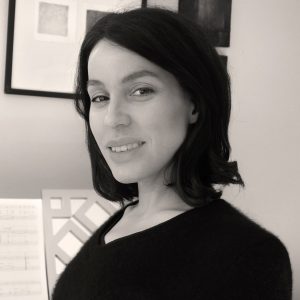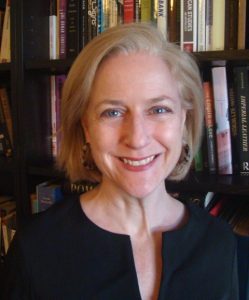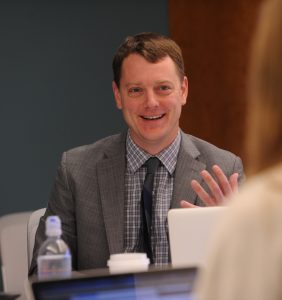Main Library, rm. 220
Friday, March 1, 2019, 9:45am-4:30pm
After transforming their dissertations into a first book, many professors turn to a second book project to extend their interest in their field of research and even to clarify their career aims. “The Second Book Project” is a symposium bringing together the ongoing research projects of several distinguished scholars of American literature. Our participants will be discussing their books-in-progress, especially their premises and critical purposes. Each of these scholars has written a very successful first book about American literary history, and each is engaged in a new rich, venturesome study. They will further describe the impact they hope for their books to make, the scholarly need or opportunity they see themselves addressing, and how they expect their books to contribute to the various ongoing debates of which they will be a part. By circulating their ideas in this way, the symposiasts are also inviting further discussion of their projects and are especially interested in the audience’s engagement with their arguments. Each speaker will talk for about thirty minutes, after which the other panelists and audience members will have a chance to exchange ideas and raise questions.
Schedule:
Gordon Hutner, at 9:45: Welcome
Michael Cohen (UCLA), at 10:00: “Learning in Verse: Poetry and Mass Education in America”
(UCLA), at 10:00: “Learning in Verse: Poetry and Mass Education in America”
The talk is an overview of a research project that examines how poetry became a scholastic subject in the United States. The project covers a period between the 1840s and the 1940s, and it considers how and why students in formally-organized institutions of primary and secondary education came to be taught how to read and write poetry as a major part of their education. The project considers the American primary and secondary school as key sites in the creation of new concepts of literature, the literary canon, and literary value, and it examines in detail the roles that poetry played in the increasing systematization of public education during the Progressive Era, a period marked by both curricular and institutional innovations in education, and also the entrenchment of segregated schooling.
Judith Madera (Wake Forest University), at 11:00: “Black Counter-Cartographies: Bodies, Texts, and Networks in the Age of Abolition”
(Wake Forest University), at 11:00: “Black Counter-Cartographies: Bodies, Texts, and Networks in the Age of Abolition”
“Black Counter-Cartographies” explores the shared geographical and historical structures linking Afrodiasporic communities in the Caribbean and US. The talk illuminates a cross-section of African American literary history to show how writing can awaken radical place potential. It looks at the ways black diasporan authors reoriented knowledge and form to give presence to black embodiment. Black counter-cartographies, I claim, invent connectivity in sites that look like closures. The literature enables critical conversations about place-making and belonging in an epoch of radical struggle.
Victoria Olwell (University of Virginia), at 2:00: “Literary Fiction and the Ambiguities of Consent”
(University of Virginia), at 2:00: “Literary Fiction and the Ambiguities of Consent”
The power of consent to confer legitimacy on a whole range of social bonds and interactions, from the most trivial to the most momentous, attracted intensive and anxious scrutiny in the late nineteenth- and early twentieth-century US. Enlightenment conceptions of consent frayed under the pressure of historical forces, including extensions of the voting franchise, imperial expansion, and more subtle shifts in thinking about the sexual body, theories of child development, and private contract. Literary fiction absorbed new controversies about consent, often rendering them in intricate constructions of subjectivity and narrative explorations of the meaning of choice, in context and over time. This talk explores some of the major terms of fiction’s engagement with the problematic of consent and argues for fiction’s role in shaping the intersecting paradoxes of modern state sovereignty and private agency.
Michael LeMahieu (Clemson University), at 3:00: “Post-54: Reconstructing Civil War Memory in Brown v. Board Literature”
(Clemson University), at 3:00: “Post-54: Reconstructing Civil War Memory in Brown v. Board Literature”
In the aftermath of the 1954 Brown v. Board of Education decision, U.S. writers reconstructed genres of Civil War memory that had previously served to romanticize military valor, mutual sacrifice, and sectional reconciliation in order to minimize the legacies of slavery. Charleston and Charlottesville are but the most recent reminders that the Lost Cause narrative of Civil War memory was an intentional product of Jim Crow segregation. The most visible manifestations of that narrative, memorials to the Confederate dead, were erected decades after the end of the war as symbolic adjuncts to the physical terrors of lynching. Whether embodied in public monuments or depicted in feature films, Civil War memory circulates through cultural narratives whose generic form often performs ideological functions: chivalric romance underwrites racial violence, pastoral elegy encodes agrarian ideology, alternate history promulgates Confederate apologetics, and concepts of tragedy undo narratives of emancipation. Through works that simultaneously inhabit and transfigure these generic forms, writers during the civil rights movement advanced counter-genres of Civil War memory that strategically debunk Lost Cause mythology and actively intervene in civil rights struggles.
4:00: Discussion
